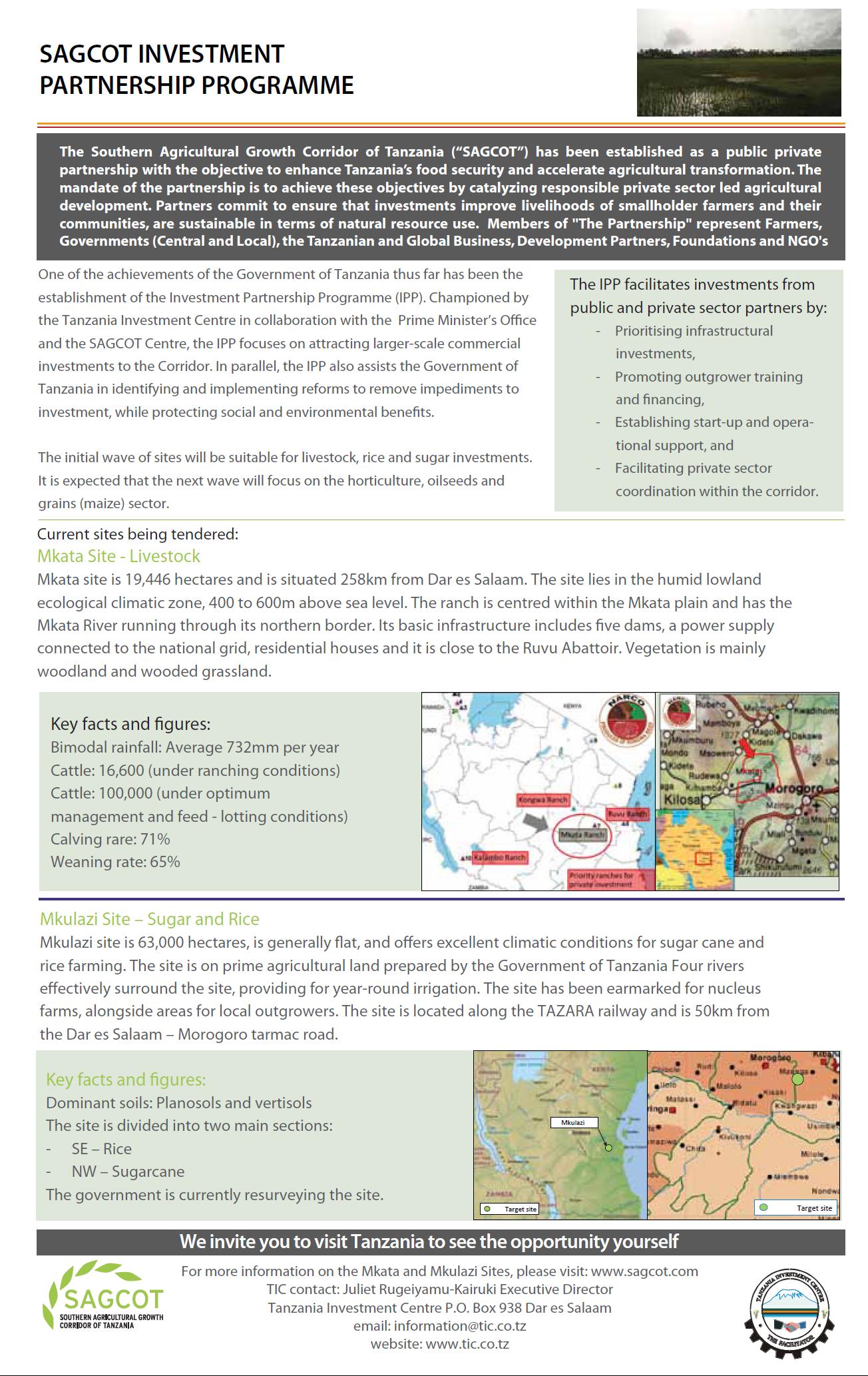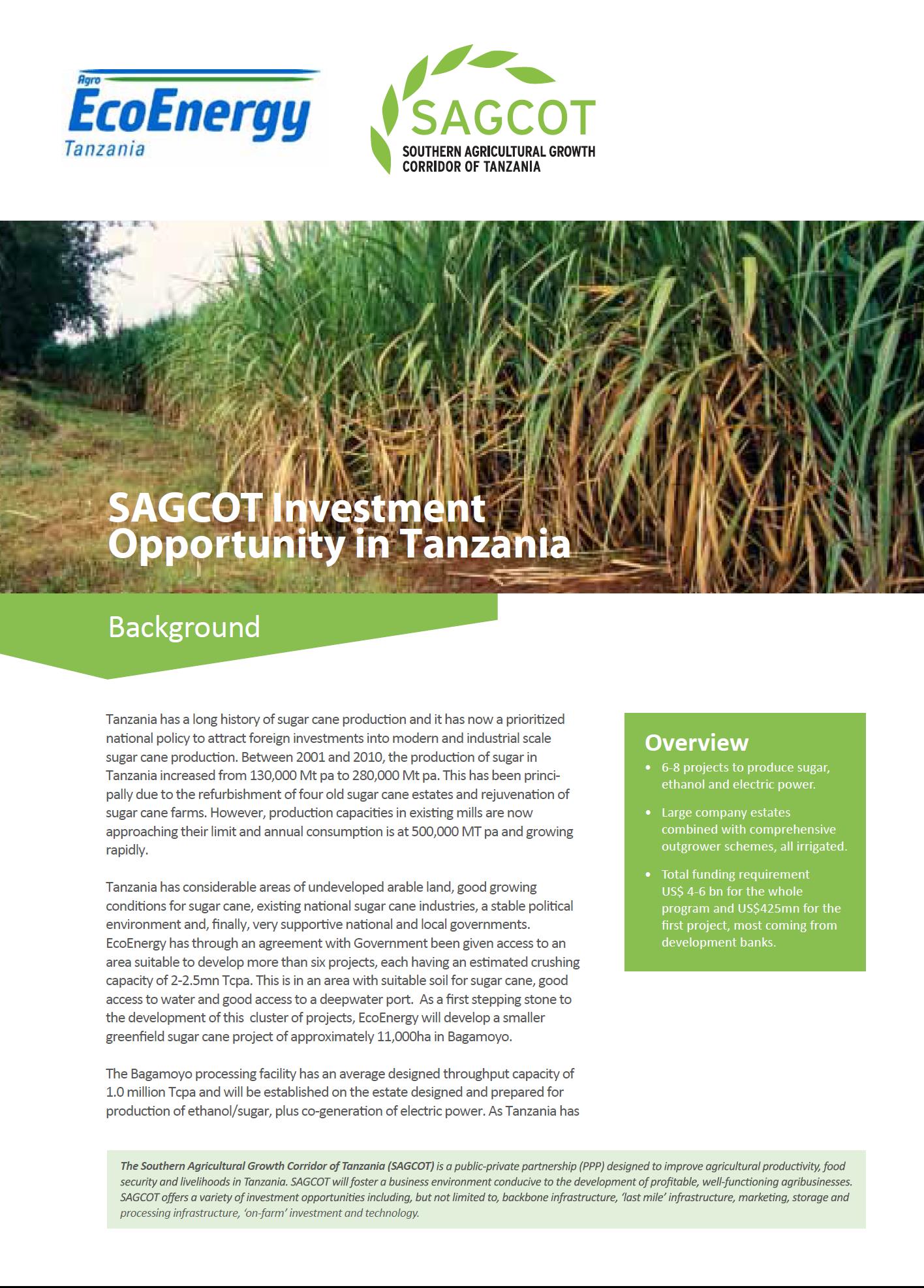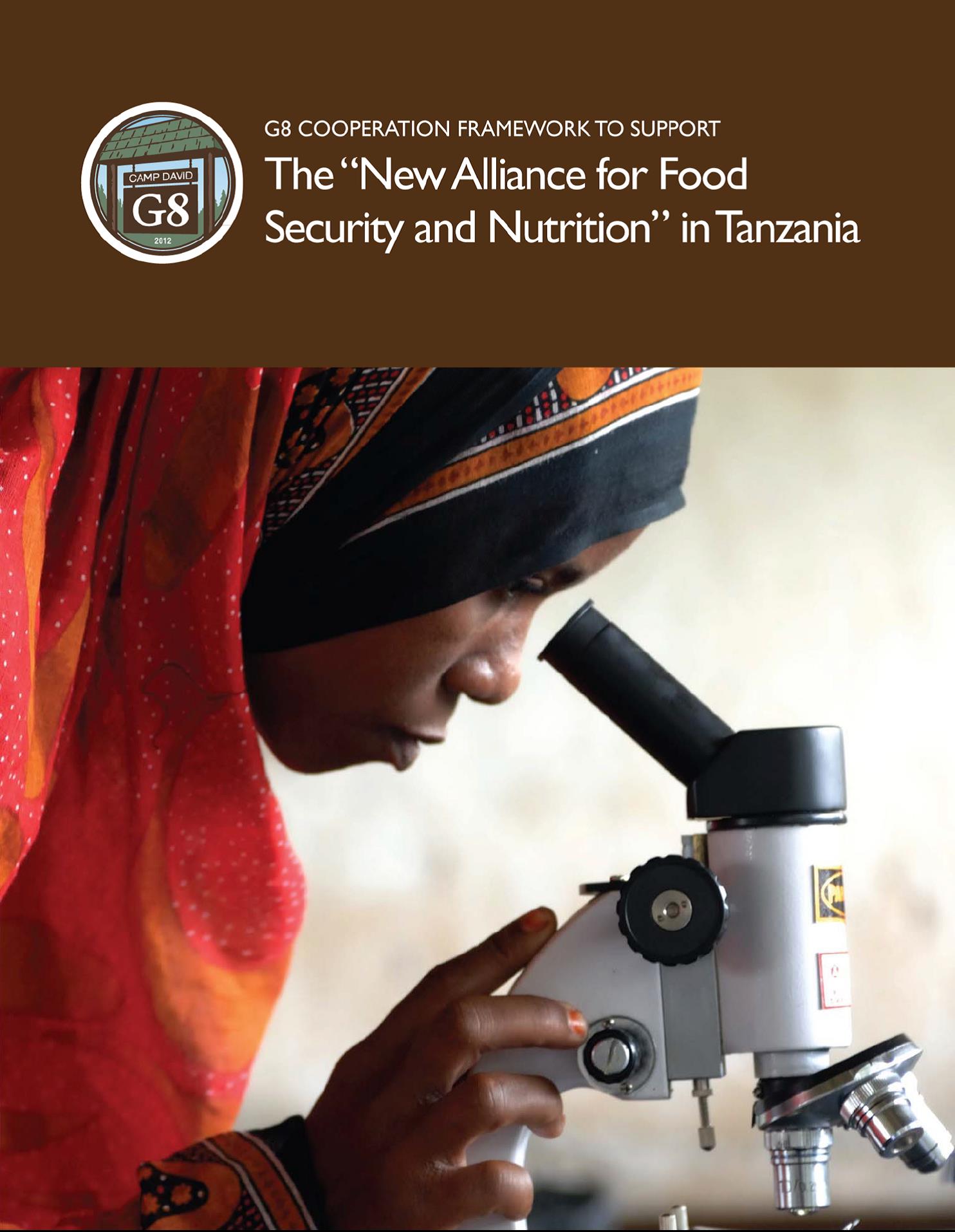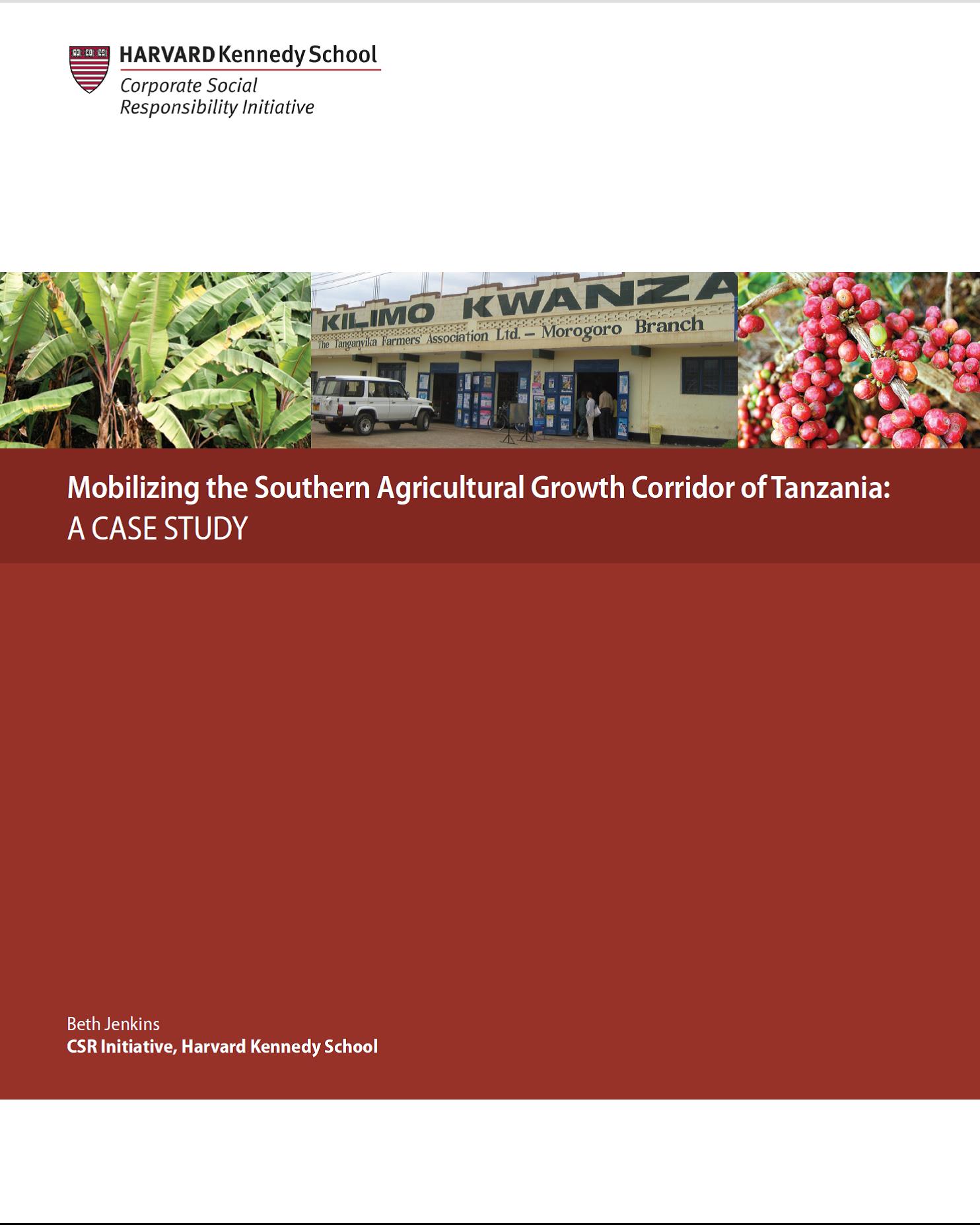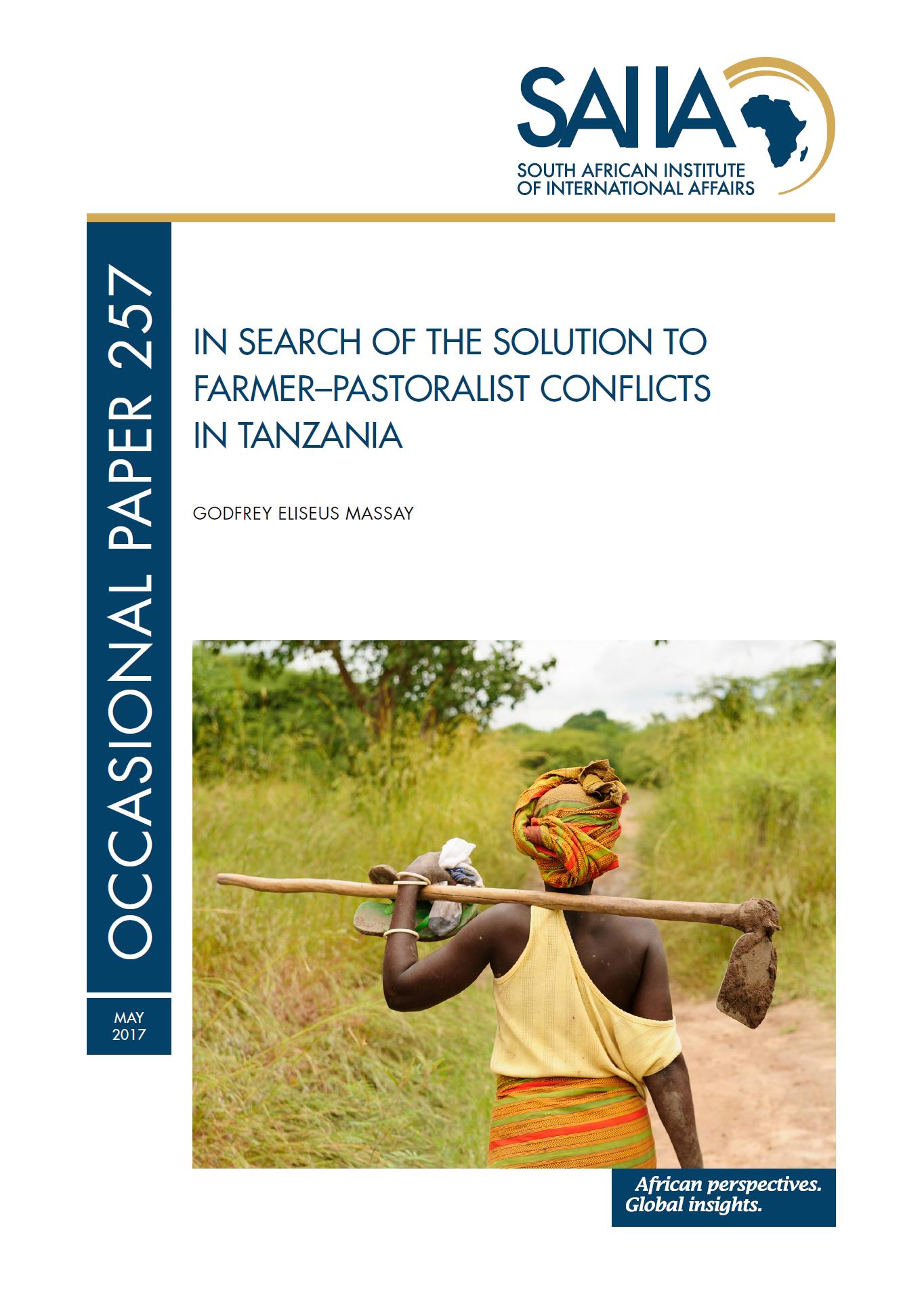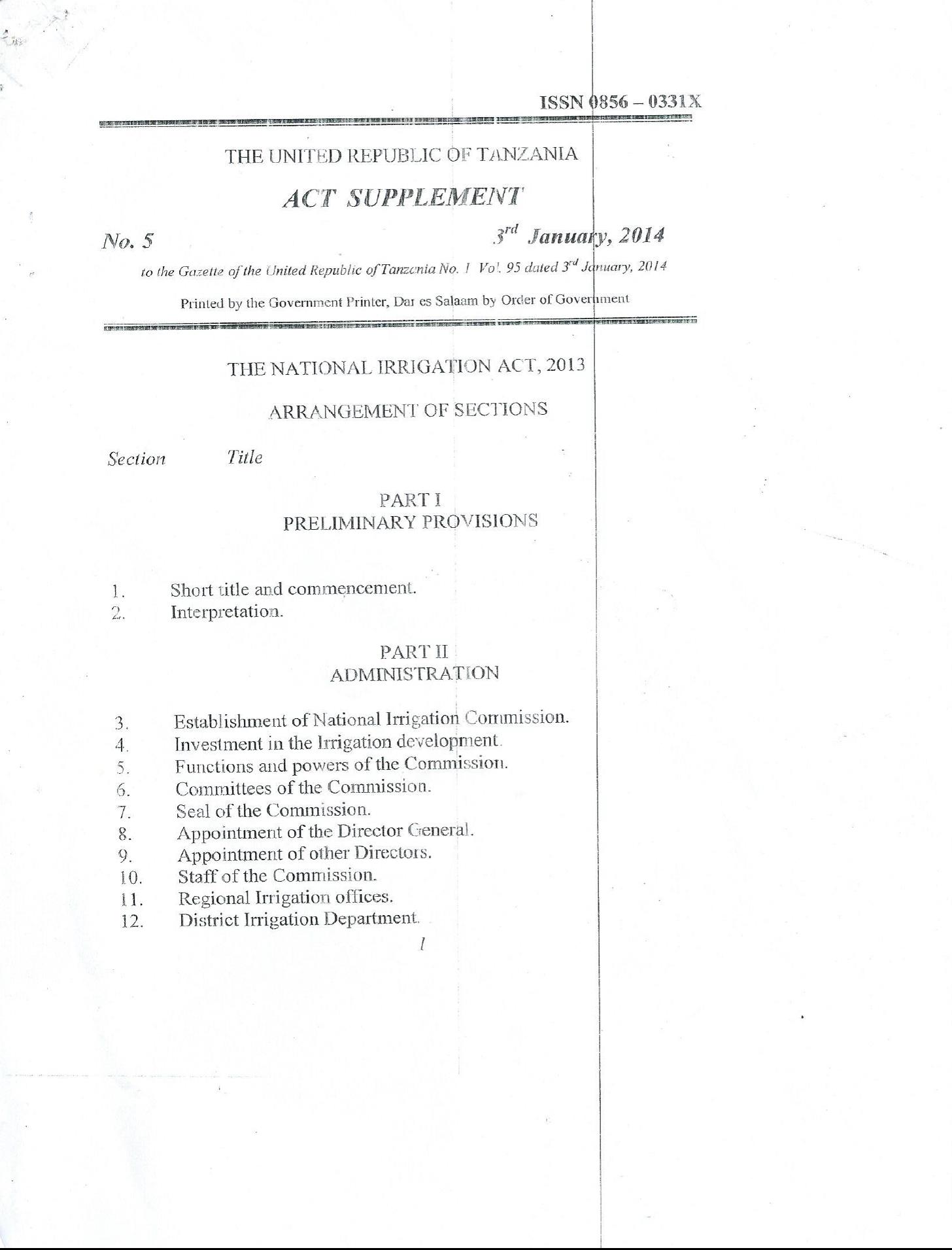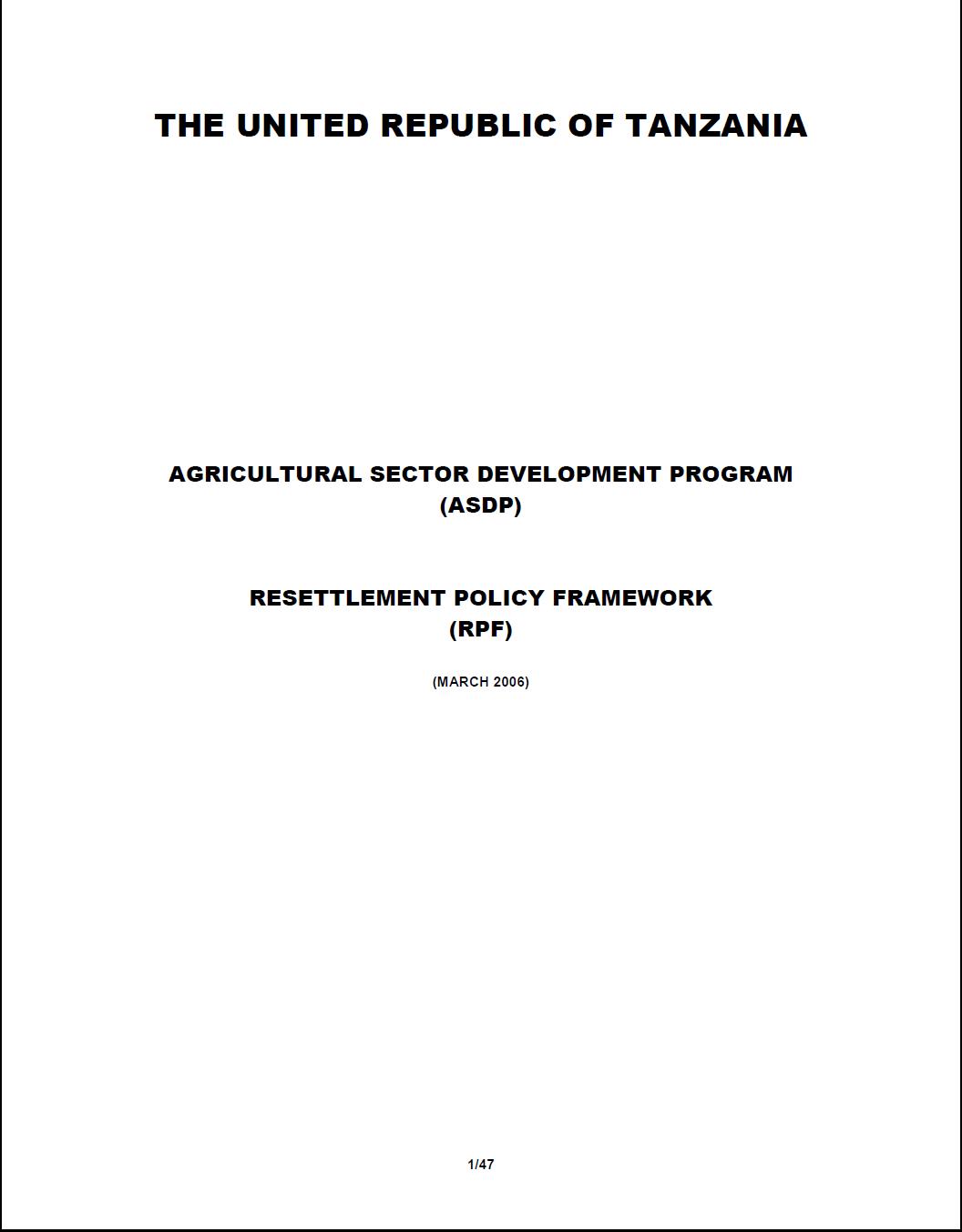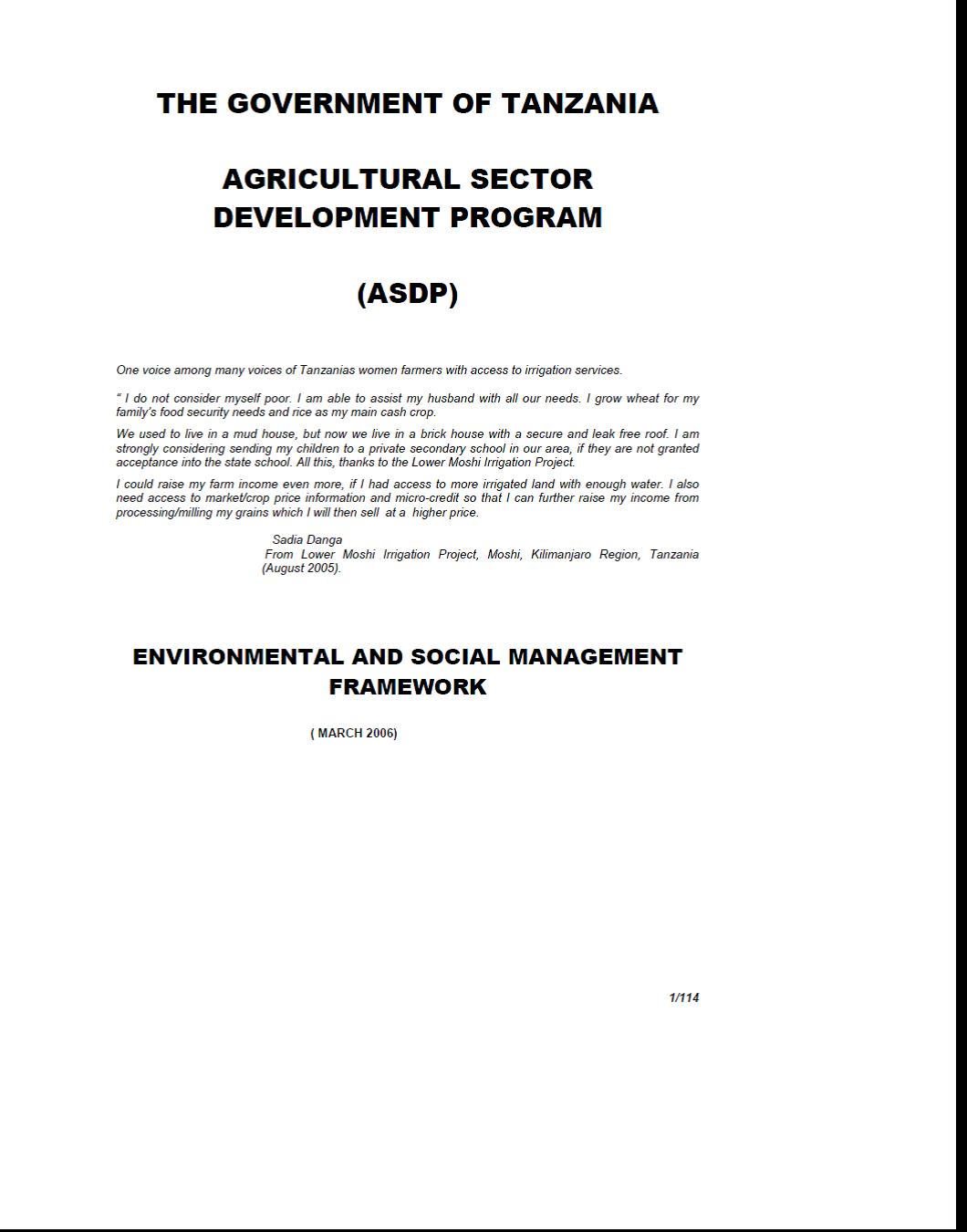SAGCOT Investment Partnership Programme
The Southern Agricultural Growth Corridor of Tanzania (“SAGCOT”) has been established as a public private partnership with the objective to enhance Tanzania’s food security and accelerate agricultural transformation. The mandate of the partnership is to achieve these objectives by catalyzing responsible private sector led agricultural development. Partners commit to ensure that investments improve livelihoods of smallholder farmers and their communities, are sustainable in terms of natural resource use.

